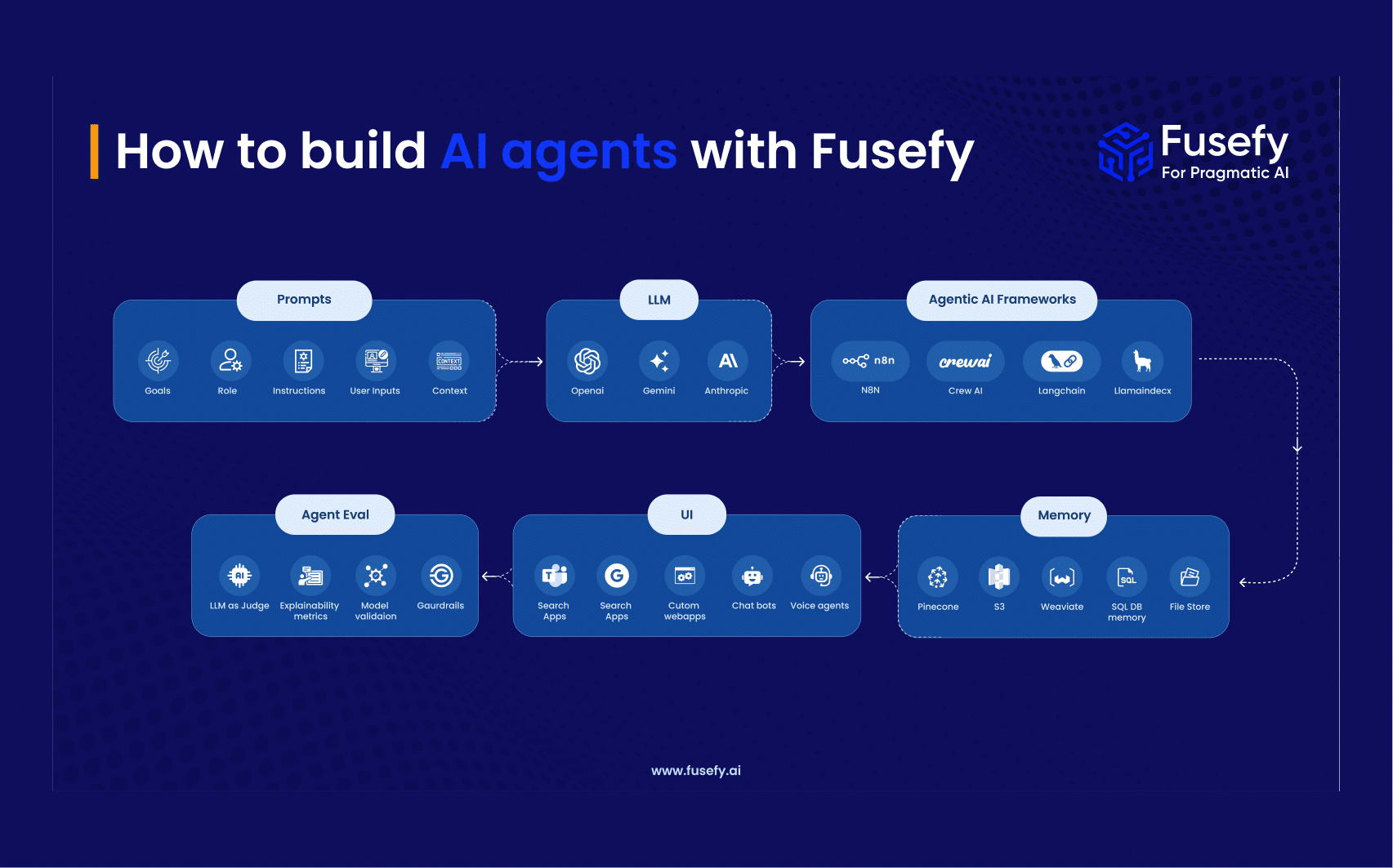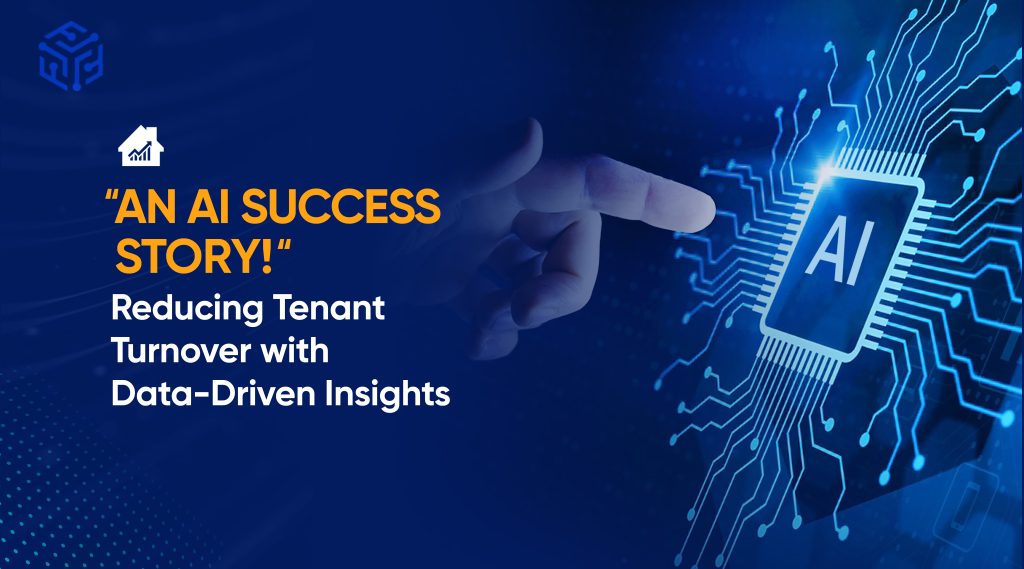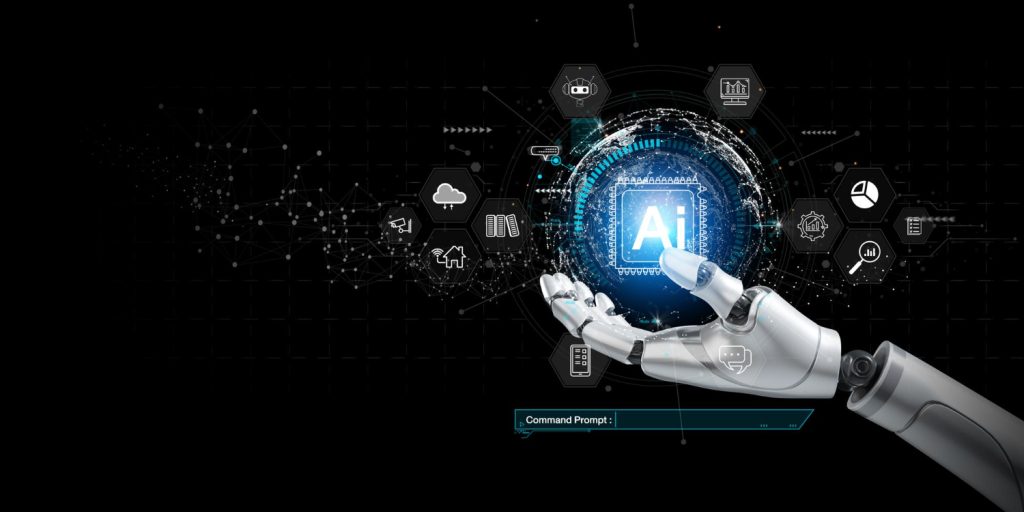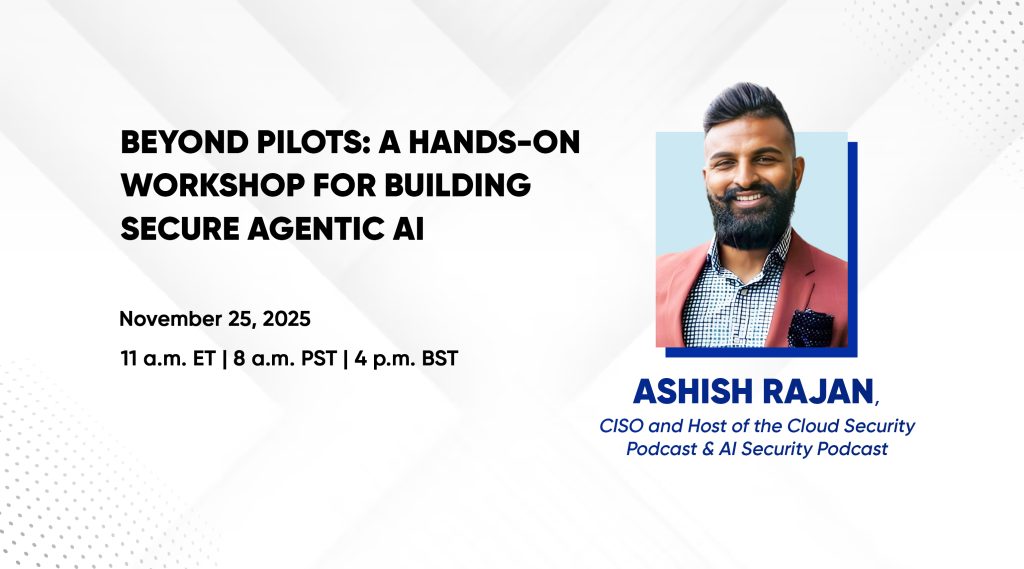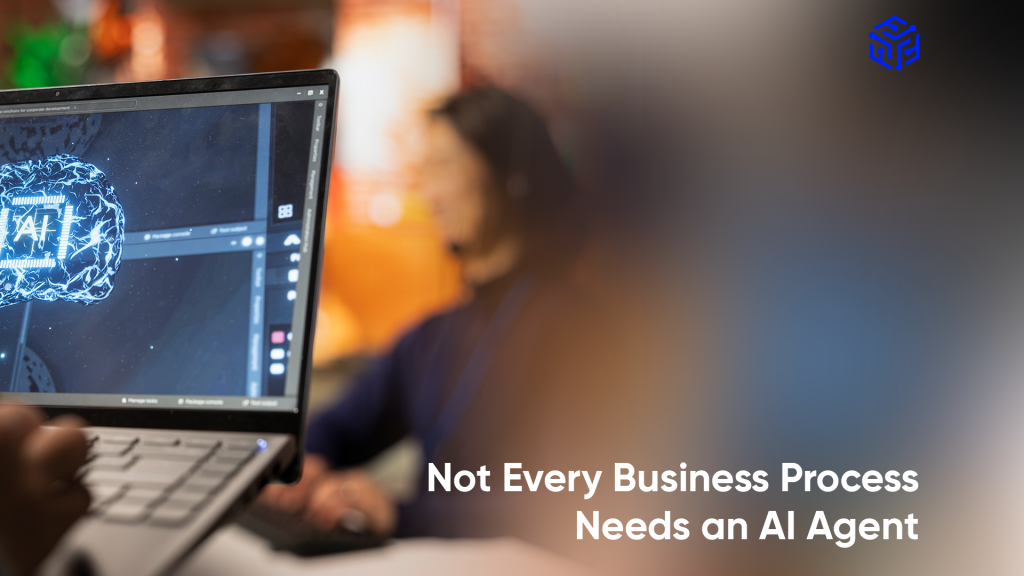Fusefy’s platform delivers a unique, structured methodology to help enterprises ideate, develop, deploy and govern AI agents rapidly and at scale. This guide provides a step-by-step walkthrough of the proprietary agent-building process, showcasing how modules such as Ideation Studio, AI Foundry and Audit Suite ensure trustworthy and efficient AI delivery.
Step 1: Laying the Foundation for an AI Agent
Module: Fusefy Ideation Studio
The first step in building an AI Agent begins with clear definition and alignment. Business users and project teams collaborate to define prompts, user inputs, context and acceptance criteria.
Key elements include:
-
- Capturing KPIs, constraints and success metrics
- Documenting data input requirements
- Outlining workflows through detailed user stories
User stories and acceptance criteria can be automatically generated as Jira tickets, ensuring smooth transition between business goals and technical requirements. Integrations with tools like Jira and Bitbucket allow enterprises to manage initiatives inside their existing workflows.
Step 2: Model Selection and Architecture Design
Once the foundation is set, the next stage focuses on choosing the right LLM (Large Language Model) and designing the runtime architecture.
The process evaluates whether the use case requires a proprietary, open-source or cloud-hosted LLM. In many cases, retrieval-augmented generation (RAG) is included to enhance knowledge grounding.
Architecture design emphasizes:
-
- Microservice orchestration and CI/CD integration
- Prebuilt connectors for GitHub, VS Code and cloud APIs
- Built-in compliance, security and scalability
Step 3–5: Building and Deploying AI Agents
Frameworks and Testing for AI Agent Development
The construction stage includes framework design, integration, testing and deployment. Development teams use low-code modeling to map workflows, define orchestration logic and set governance policies. Pipeline automation accelerates training and retraining cycles, while compliance strategies establish data security and regulatory safeguards from day one.
Continuous monitoring and user feedback loops ensure that each AI Agent remains reliable and adaptable to evolving business requirements.
Step 6: Risk, Compliance and Audit Monitoring
Audit and compliance are critical in enterprise AI. Monitoring tools track model drift, agent actions and regulatory alignment across regions.
Features include:
-
- Real-time compliance dashboards and alerts
- Risk radar for early detection of issues
- Audit trails capturing decisions, data flows and interactions
This ensures every deployment remains transparent, accountable and compliant with global standards.
Key Benefits of the AI Agent Development Pipeline
-
- Seamless Business-IT Collaboration: Connects natural language ideation to technical workflows.
- Low-Code, Rapid Prototyping: Quickly scale from proof-of-concept to production.
- Continuous Compliance: Automated monitoring keeps every deployment aligned with policies.
- Multi-Platform Readiness: Deploy across on-prem, cloud or hybrid environments without lock-in.
Why Enterprises Choose AI Assistants for Business
Enterprises increasingly look for autonomous AI agent solutions that accelerate productivity and compliance. Modern workflows are shifting toward systems that can build AI co-pilot tools to handle repetitive tasks and decision-making.
By leveraging GPT-powered enterprise assistants, businesses can scale operations, reduce human error and ensure smarter collaboration across teams.
The Future with AI Assistants for Business
AI assistants are no longer limited to chat support. Today organizations are deploying AI assistants for business functions ranging from finance reporting to legal compliance. The combination of orchestration, monitoring and continuous training allows enterprises to benefit from autonomous AI agent solutions that adapt to real-world complexity.
Conclusion
Building AI agents requires more than model selection; it involves governance, monitoring and alignment with enterprise standards. Fusefy’s methodology ensures that from ideation to compliance, every AI initiative is structured for trust, scale and long-term success.
